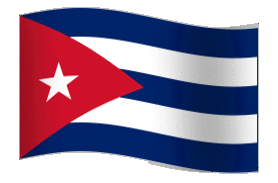For the first quarter century as an independent nation, Cuba had a constitutional form of government, until the presidency of Gerardo Machado y Morales. As president of Cuba, Machado gave the Cuban people a strong sense of nationalism. While running for presidency he campaigned for national recognition, which got strong support from the Cuban people. Then when he got elected he wanted to further prove to other countries that Cuba was free and powerful. To demonstrate Cuba’s independence as a colonized country, Machado decided to tax American capital investments, showing that Cubans had a say in what happened to their country and rebelling against American control. He also constructed a 700-mile central highway to promote Cuban investments, industry, mining, and tourism (1). Machado had a strong sense of nationalism and he spread it to his people. His national pride most likely was formed when he fought as a general in the Cuban War of Independence. The Cuban War of Independence ended with U.S. occupation, during the occupation Machado served as Mayor of Santa Clara. During this time Machado started to campaign for Cuban sovereignty (2). He did not want Cuba to take orders from other countries. Although he supported most
American interests he wanted a totally decolonized Cuba. He made this clear during his presidency. Wilfredo Fernandez, leader of the Conservative Party, said in December 1925 that Machado's programs were so "full of patriotism."(3). Machado gave a feeling of nationalism to his people in order for other countries to recognize Cuba, and for Cubans to recognize the country they lived in. Machado was able to use this support, however, to gain excessive control of the government. In 1930, President Machado suspended the Cuban constitution, putting the rights of Cuban citizens at risk. Even though he was elected with significant support, Machado seized control of political parties and used public dollars to boost his own status(4). Despite a seemingly democratic election process, with leaders like Machado, Cuba was all but free.
American interests he wanted a totally decolonized Cuba. He made this clear during his presidency. Wilfredo Fernandez, leader of the Conservative Party, said in December 1925 that Machado's programs were so "full of patriotism."(3). Machado gave a feeling of nationalism to his people in order for other countries to recognize Cuba, and for Cubans to recognize the country they lived in. Machado was able to use this support, however, to gain excessive control of the government. In 1930, President Machado suspended the Cuban constitution, putting the rights of Cuban citizens at risk. Even though he was elected with significant support, Machado seized control of political parties and used public dollars to boost his own status(4). Despite a seemingly democratic election process, with leaders like Machado, Cuba was all but free.
_____________________________________________________
(1) Columbia Electronic Encyclopedia, Feb. 2013. Web. (accessed May 21, 2013.)
(2) Sierra, Jerry A. "Gerardo Machado." The History of Cuba. N.p., n.d. Web. accessed (May 27, 2013.)
(3) Encyclopædia Britannica Online School Edition, s.v. "Machado y Morales, Gerardo," (accessed May 28, 2013)
(4) "Ibid"


No comments:
Post a Comment